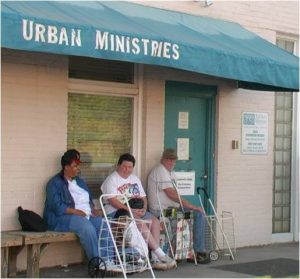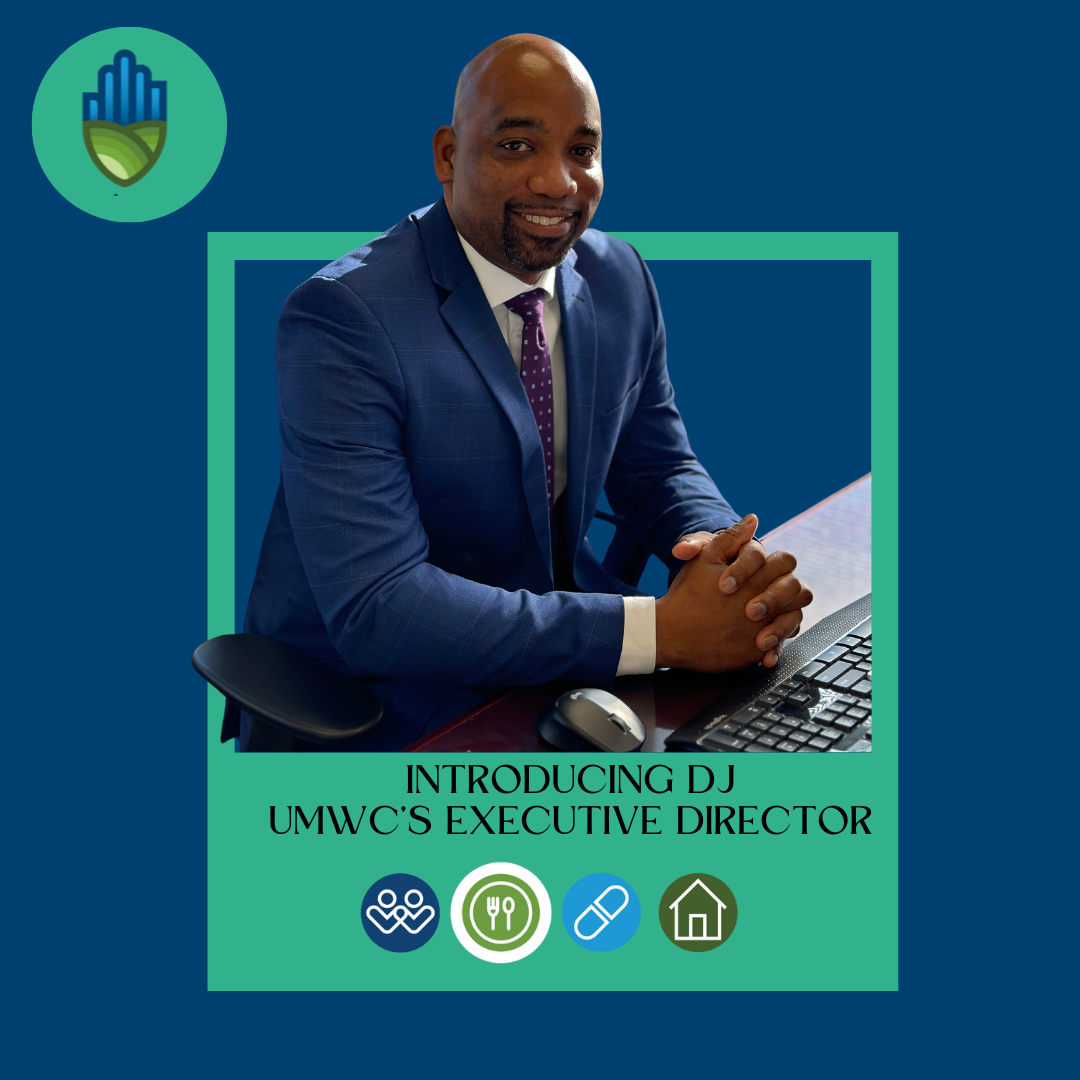
As we mark our 40th year of serving this generous community, we also look ahead to Urban Ministries of Wake County’s future.
We continuously evolve to meet the need, always trying not to duplicate services. 2020 was quite a transformative year as we pivoted all our programs in light of the pandemic.
In the last 40 years, our shelter has grown from one that offered emergency shelter to 25 men to the county’s largest shelter for women experiencing homelessness. The Helen Wright Center for Women now offers workforce development, giving eligible women the opportunity to get certified for higher paying jobs.
Our food pantry has gone from a small operation to one of the county’s largest. From 2016-2020, we allowed our guests to shop for their own food. We pride ourselves on providing fresh, nutritious foods. During the pandemic, we went back to curbside for safety reasons and now serve up to 85 cars a day.
The Open Door Clinic, started in 1985, is one of the state’s first free and charitable clinics. We now serve more than 1500 uninsured adults each year and provide medications from our on-site pharmacy at no cost to our patients.
As we look ahead to the immediate future, our 2 to 3 year direction will be guided by lessons of the pandemic.
There were changes we made of necessity: to better serve short term food insecurity by allowing our shoppers to use our pantry more frequently than once every three months, and increasing self-care of chronic illness, with home monitoring of diabetes, hypertension and obesity.
There were pivots of necessity that taught us to listen better: client choice could mean the choice of shopping our pantry or the choice of drive through curbside service, or the choice of telehealth visits and curbside pharmacy pickup as a convenience.
There were operational changes born of safety that allowed for telecommuting for some staff, switching from an almost all volunteer model to more staff, and operating three shelter buildings to maintain social distancing.
There will be a pivot of intentionality: reaching out to underserved communities of color to address disparities in health outcomes and to seek partners in health rather than wait to be found.
We have used this time to listen and respond better to our neighbor’s needs, to not see a lock down as confining, and to be more intentional in our all our programmatic directions.
We evolve as our neighbors needs do, but we also want to be a part of solving the root causes of hunger, access to healthcare, and homelessness.
We work tirelessly behind the scenes to do that. We are in lockstep with Wake County when it comes to the homeless crisis. We are heavily involved in the local medical community. We work with other local organizations to fight hunger. We understand the disparities in our community, in our society. We work every day to bring changes that help the immediate issues as well as the underlying causes of poverty.
We also know we are not alone on this journey. Countless volunteers have given of their time and talents over 40 years. Community partners have supported our efforts. Donors have generously given to our cause. We still need that support as we head into this next era, which presents its own unique challenges.
Thank you for your part in that.
-Dr. Peter Morris
Executive Director, Urban Ministries of Wake County






